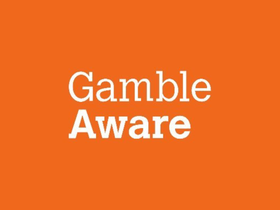Our hope is that this work can better inform efforts to promote responsible play and prevent the potential harms that problem gambling can cause.
A study conducted by researchers at Bowling Green State University (BGSU) found that a person’s sex, age, religiosity, income, and home address are all factors in how often that person gambles.
In a research letter published in the October 31 edition of JAMA Network Open, principal investigator Joshua Grubbs, an associate professor of psychology at BGSU, said the study revealed that “for all forms of sports wagering involvement, being male, younger, more religious, of higher income, and living in a state where sports wagering is legal were associated with a greater likelihood of play.
“With regards to problem gambling scores — beyond demographic controls, engagement in general sports betting, daily fantasy play, and e-sports wagering were each associated with being categorized as a moderate-risk or-high-risk gambler, although general fantasy sports play was not.”
Grubbs said researchers found sports wagering to be “a niche, but not rare, recreational activity among US adults, with younger men with greater family income being especially prone to wager. E-sports wagering, daily fantasy league play, and general sports wagering are each associated with greater symptoms of problem gambling.”
While sports betting is likely a safe recreational activity for most people, Grubbs warned that the study’s findings “suggest that individuals who wager on sports may be at higher risk of gambling-related problems.” He said more research needed to be done.
As access to sports wagering rises in the US, it is crucial that psychiatric and mental health communities consider sports wagering in future research and clinical care.
“As access to sports wagering rises in the US, it is crucial that psychiatric and mental health communities consider sports wagering in future research and clinical care.”
The study was commissioned by the International Center for Responsible Gaming (ICRG) through the first-ever award from the Sports Wagering Research Fund. ICRG awarded a three-year grant totaling $401,930 to BGSU to conduct the study.
When ICRG announced the award in November 2021, Grubbs said the upcoming study would analyze “the rapidly changing face of sports wagering in the US, with a focus on understanding what factors might lead some people to develop problematic play, whereas other people can wager without problems.
“Our hope is that this work can better inform efforts to promote responsible play and prevent the potential harms that problem gambling can cause.”
Funding for the study was provided by the American Gaming Association (AGA), MGM Resorts International, DraftKings, William Hill US/Caesars Entertainment, Entain, Hard Rock International, and IGT, among others.
Methodology
BGSU researchers looked at four categories of sports wagering to determine if they increased a person’s propensity to gamble:
- General sports wagering
- Paid fantasy league play
- Daily fantasy league play
- E-sports wagering
Last March, BGSU hired the market research and data analytics firm YouGov to recruit “US adults matched and weighted for US norms for age, gender, education, census region, and race and ethnicity as of the 2019 American Community Survey and an over-sample of sports-wagering adults in the US,” according to the study.
YouGov ultimately recruited 2,806 participants for the study. They were asked to report how many times they had engaged in any of the four aforementioned types of sports betting over the past 12 months. An index was created to determine a level of severity.
Weighted estimates in the census-matched sample found that:
- 17.2% of participants (485) had wagered on sports in their lifetime
- 6.2% (175) acknowledged that they had bet on sports in the past year
- 9.1% (256) had wagered on e-sports in their lifetime, including
- 4.1% (114) who had wagered on e-sports within the past year
- 12.9% (364) said they had played paid fantasy sports in their lifetime
- 5.9% (166) had played in the last year
- 10.3% (287) had entered daily fantasy league play in their lifetime
- 4.2% (117) having played within the last 12 months



